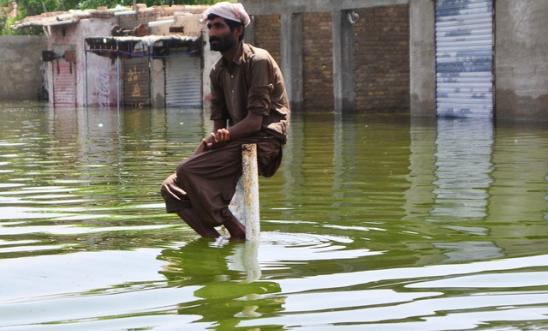
Press releases
Paris Summit: Major ‘rethink’ on global finance needed to help poorest cope with climate crisis

Governments, private creditors and international financial institutions should consider debt restructuring and cancellation
‘We urge the summit’s participants to recognise the urgency of this unfolding crisis’ - Agnès Callamard
Wealthy countries attending the Summit for a New Global Financial Pact in Paris this week (22-23 June) must honour previous financial pledges and commit to comprehensive debt relief for lower-income nations, including the cancellation of loans and the scaling up of international assistance to vulnerable countries, Amnesty International said.
Up to now, wealthy countries have failed to fulfil their commitment to provide US$100 billion a year to help lower-income countries mitigate and adapt to climate change. A separate loss and damage fund is also yet to be funded or become operational, and a major climate meeting in Bonn earlier this month saw disputes between wealthy and developing countries over climate finance.
Amnesty has numerous concerns over the Paris summit, including the absence of a scheduled discussion on a UN Tax Convention and Tax Body to create fairer global tax governance. See Amnesty’s detailed recommendations for how economic and social rights should be financed.
Agnès Callamard, Amnesty International’s Secretary General, said:
“Many vulnerable, lower-income countries have been overwhelmed by economic shocks, debts they cannot pay and the effects of climate change – a crisis to which they contributed very little, but which is costing people in these countries dearly. These are unprecedented challenges that require a rethink of how the world’s financial architecture is set up.
“The rights of many people in vulnerable countries to access healthcare and social protection are not being met at even the most basic level. There is a vital need to provide financial and technical assistance to these countries so that they can scale up social protection schemes to guarantee people’s right to an adequate standard of living.
“Coordinated international action offering debt relief can transform the ability of governments to invest in economic and social protections, supporting their capacity to protect the rights of their people.
“All creditors - states, private creditors and international financial institutions - should cooperate to ensure timely debt relief for all countries in and at risk of debt distress, and consider all options, including debt restructuring and debt cancellation.
“We urge the summit’s participants to recognise the urgency of this unfolding crisis and encourage them to harness the growing momentum for change. It is crucial that they enable further progress at the G20 Leaders’ Summit and COP28 climate meeting later this year.”